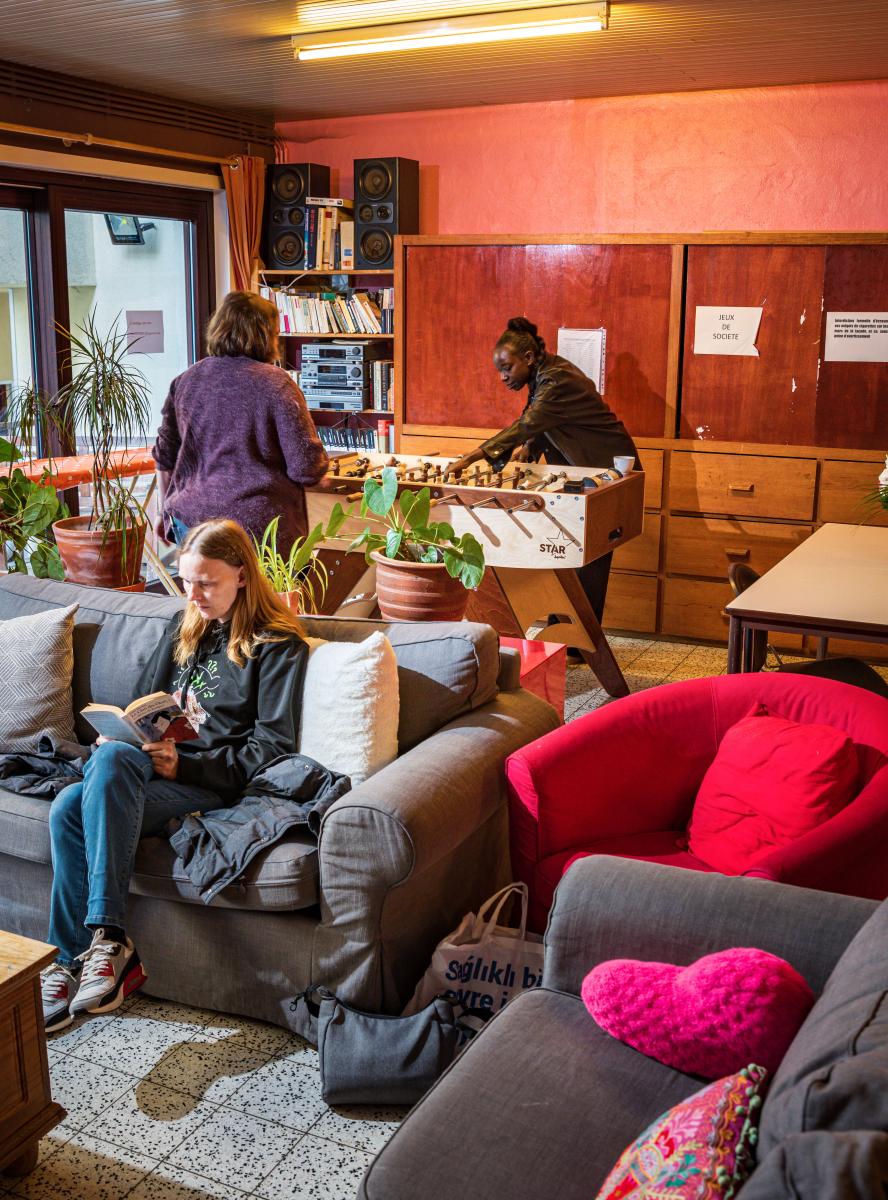Energy crisis: almost 3 million euros in support for around 500 organisations fighting poverty

Some 500 organisations engaged in fighting poverty will be able to continue their work this winter thanks to support of a total of almost three million euros from the King Baudouin Foundation. A real breath of fresh air that will enable the organisations to maintain the services they provide during a period of (energy) price rises and an increasing number of requests for help. Solidarity remains important in the sector.
The energy crisis and rising prices are having a huge impact on the most vulnerable. It is these people who are more and more numerous in seeking help from organisations that fight poverty, which are themselves facing increases in their own costs (of aspects such as heating, electricity, salary indexation, and rent increases). This brings with it the risk that some organisations may no longer be able to continue to provide the services they offer, leading to changes in their opening hours, a reduction in their personnel and so on.
Rapid mobilisation
Aware of these difficulties, in October 2022, the King Baudouin Foundation launched an emergency call to organisations working with people experiencing poverty. The objective was to help the organisations to continue their work of care and support for the most vulnerable. Each association could apply for a lump sum of 2,500, 5,000 or 7,500 euros, to help it cover the kinds of expenses relating to energy, such as heating costs, insulation work etc.
Brieuc Van Damme, CEO of the King Baudouin Foundation said: “More than ever, during a crisis our mission is to stand by those who are suffering the most and this means supporting the actors in the field who provide support. This is why, very quickly, we made a budget of 2 million euros available to organisations active in fighting poverty and launched a simplified procedure for obtaining the grant – rather like the one we used at the start of the Covid-19 pandemic – in order to react as speedily as possible to the needs of those in the field.” The result was immediate: in barely ten days’ time, the available budget had been used up. “The success of the call confirmed the huge needs of those in the field. So, in order to help them even more, we released an additional budget of one million euros.”
Solidarity
A total of 494 organisations involved in fighting poverty received support totalling 2,970,000 euros.
- The organisations we supported varied greatly and included social restaurants, food aid, help for the homeless, care for vulnerable youngsters and women’s shelters.
- 34% of the organisations supported were in the Brussels-Capital Region, 32% in Wallonia, 31% in the Flemish Region and 2% in the German-speaking Community.
- 15% of them asked for 2,500 euros in support, 30% support of 5,000 euros and a further 55 asked for 7,500 euros in support.
"These figures bear witness to the great solidarity present in the sector: almost half of the organisations asked for a limited amount (of 2,500 or 5,000 euros), so that a maximum number of organisations could be supported”, added Brieuc Van Damme.
The total budget for this emergency call came entirely from the King Baudouin Foundation’s own resources, from the Belgian National Lottery, from donations to the annual ‘Poverty’ call and from funds managed by the KBF (the Oldeneel tot Oldenzeel Fund, Solvay Solidarity Fund, Rosa and Julie Vandenhende Fund, Josette Delvenne Fund, Steldust Fund, Georges Marie Vandermeir Fund, Moulaert – Laloux Fund, Laurentine Poncet Fund, AW Fund and the Allaesi Fund, as well as from the Donors’ Circle).
A breath of fresh air
"It was a real breath of fresh air for our association", "It was something to cushion the shock and avoid having to ask our beneficiaries for a financial contribution", "It was support that reduced our worries and enabled us to concentrate on our mission rather than how our infrastructure was going to survive.” This feedback to the King Baudouin Foundation shows just how vital support for the sector is, if organisations are to absorb the consequences of the crisis and enable actors in the field to continue to function for the benefit of the most vulnerable.